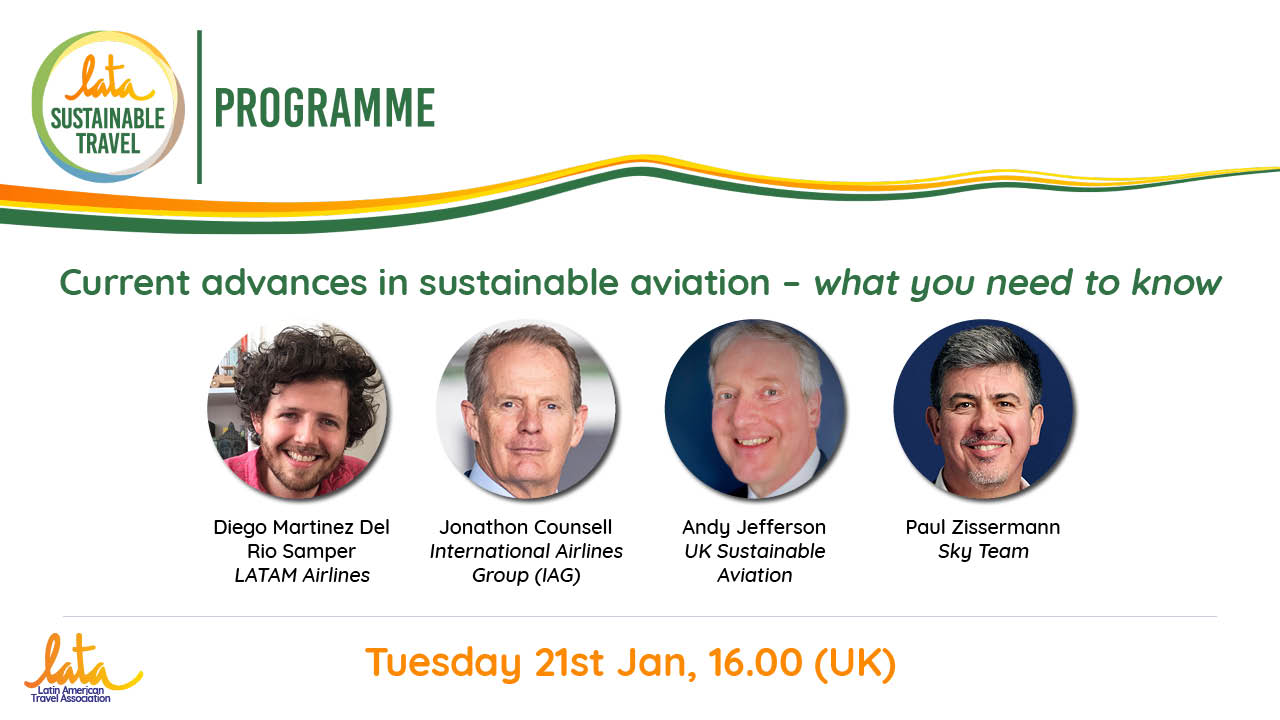Thank you to everyone who joined our webinar yesterday. We hope you found it insightful and of use. We were joined by a fantastic group of industry experts, who we are very grateful for sharing their time and expertise.
As we covered a wide range of topics, some in more depth than others, we have summarised the key discussion points below.
Sustainable Aviation Fuel (SAF): SAF is a non-fossil-based jet fuel made from materials such as crop residues, used cooking oil, and municipal waste, aiming to reduce carbon emissions by up to 70%-100%.
Global SAF Efforts: Efforts to scale up SAF production vary globally. The UK and EU have mandates requiring a gradual increase in SAF usage, but regions like Latin America are behind due to policy and infrastructure challenges.
Decarbonisation Challenges: Latin America has untapped potential for SAF production but struggles with policy implementation, infrastructure development, and balancing socioeconomic issues such as food security and environmental sustainability.
Technological Innovations: The webinar highlighted advancements like “power-to-liquid” technology that combines carbon capture with green hydrogen to create fuel, offering the possibility of carbon-negative solutions.
Barriers to SAF Adoption: Challenges include high production costs, limited infrastructure, and competition for resources, particularly in developing regions. The reliance on feedstocks also raises concerns about sustainability and land use.
Industry Collaboration: Initiatives like SkyTeam’s Aviation Challenge encourage member airlines to share innovations and adopt sustainability practices, fostering collaboration and accelerating the transition to greener operations.
Policy and Incentives: Effective decarbonisation requires not just mandates but also supportive policies such as revenue certainty mechanisms to stimulate investment in SAF production facilities.
Hydrogen as an alternative: Hydrogen-powered aviation shows promise, especially for short-haul flights, but it faces significant technical and infrastructure hurdles and is unlikely to replace SAF for long-haul flights soon.
Employee-Driven Sustainability: Airlines like LATAM encourage employees to innovate, resulting in creative solutions like reusable blankets for cargo and recertifying materials, which reduce waste and operational costs.
Need for Regional Collaboration: To optimise resources, regions like Latin America must develop integrated markets for SAF production and distribution, leveraging each country’s strengths, such as Brazil’s biofuel expertise and Chile’s green hydrogen potential.
Click here to listen back in full
